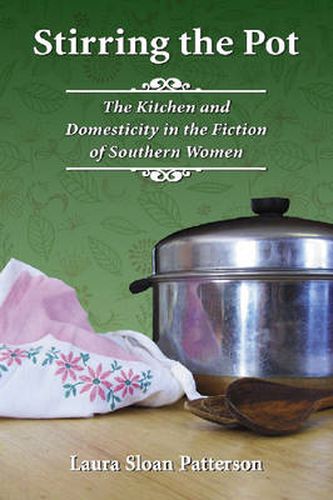Readings Newsletter
Become a Readings Member to make your shopping experience even easier.
Sign in or sign up for free!
You’re not far away from qualifying for FREE standard shipping within Australia
You’ve qualified for FREE standard shipping within Australia
The cart is loading…






This title is printed to order. This book may have been self-published. If so, we cannot guarantee the quality of the content. In the main most books will have gone through the editing process however some may not. We therefore suggest that you be aware of this before ordering this book. If in doubt check either the author or publisher’s details as we are unable to accept any returns unless they are faulty. Please contact us if you have any questions.
The term
domesticity
may bring to mind cooking, cleaning, and tranquil evenings at home. During the last few decades, however, American domesticity has become ever more politicized as third-wave feminists, conservative critics, and others debate the very meaning of home and family. Despite this new wave of debate, the home, particularly the kitchen, is comfortable territory for the consolidation of issues of gender, space, marketplace, community, and technology in twentieth century literature.This work looks closely at a wide variety of Southern domestic literature, focusing particularly on the role of the family kitchen as a driving force in the narratives of Ellen Glasgow, Eudora Welty, Lee Smith, and Toni Morrison. The topics include the overtones of isolation and the almost claustrophobic third-person narration of
Glasgow’s Virginia
and
Life and Gabriella ; the communal kitchen and its role in defining the sexual discourse of Welty’s
Delta Wedding ; the unification of national railway lines and its consequences for the traditional Appalachian kitchen in Smith’s
Oral History
and
Fair and Tender Ladies ; and the lasting effects of slavery on the
haunted domesticity
of the African-American kitchen in Morrison’s
Jazz, Paradise, and Love .
$9.00 standard shipping within Australia
FREE standard shipping within Australia for orders over $100.00
Express & International shipping calculated at checkout
This title is printed to order. This book may have been self-published. If so, we cannot guarantee the quality of the content. In the main most books will have gone through the editing process however some may not. We therefore suggest that you be aware of this before ordering this book. If in doubt check either the author or publisher’s details as we are unable to accept any returns unless they are faulty. Please contact us if you have any questions.
The term
domesticity
may bring to mind cooking, cleaning, and tranquil evenings at home. During the last few decades, however, American domesticity has become ever more politicized as third-wave feminists, conservative critics, and others debate the very meaning of home and family. Despite this new wave of debate, the home, particularly the kitchen, is comfortable territory for the consolidation of issues of gender, space, marketplace, community, and technology in twentieth century literature.This work looks closely at a wide variety of Southern domestic literature, focusing particularly on the role of the family kitchen as a driving force in the narratives of Ellen Glasgow, Eudora Welty, Lee Smith, and Toni Morrison. The topics include the overtones of isolation and the almost claustrophobic third-person narration of
Glasgow’s Virginia
and
Life and Gabriella ; the communal kitchen and its role in defining the sexual discourse of Welty’s
Delta Wedding ; the unification of national railway lines and its consequences for the traditional Appalachian kitchen in Smith’s
Oral History
and
Fair and Tender Ladies ; and the lasting effects of slavery on the
haunted domesticity
of the African-American kitchen in Morrison’s
Jazz, Paradise, and Love .